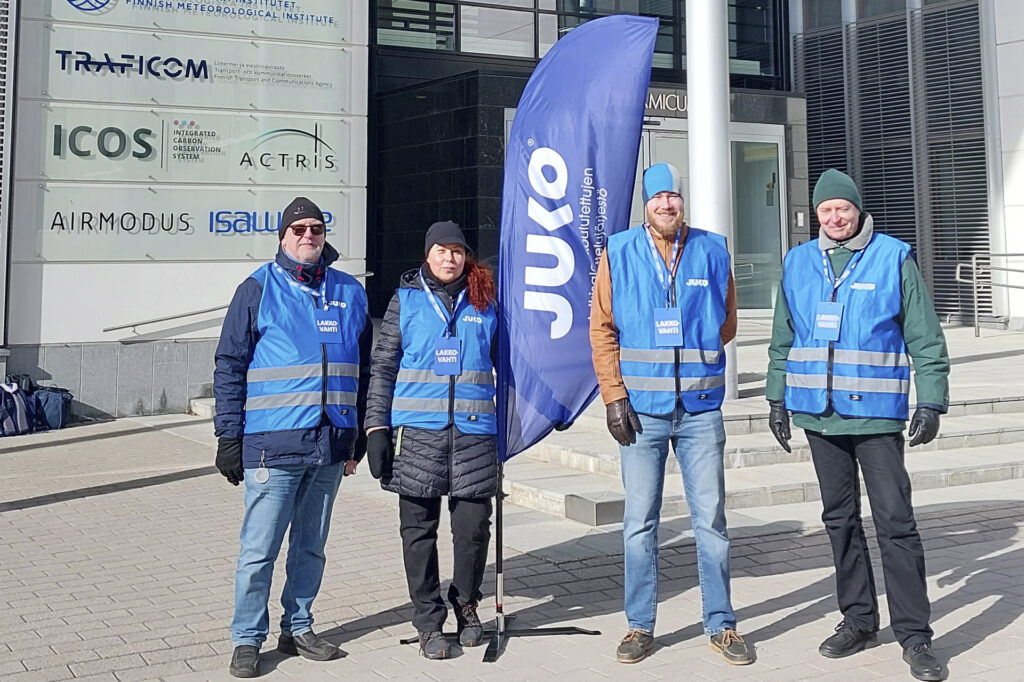Successful negotiation result was achieved through cooperation and industrial action
The labour market negotiations in the winter and spring were exceptional. Negotiations progressed slowly, but the agreements were finally reached through hard work – and strong collective power.
The labour market negotiations of spring 2025 were historic: salary increases for hundreds of thousands of employees were achieved through industrial action at the end of difficult negotiations. The results can even be considered surprisingly good, considering how unfavourable the employer side’s attitude was. Negotiations were stalled in many sectors, and strikes were needed to speed them up.

The export industry agreement created a basis for the co-called general policy, and the main objective was to achieve salary increases that were in line with this policy and would improve the purchasing power – a total of 7.8 per cent in three years – for all Akava members.
Strikes broke the stalemate in the government sector
Particularly tough negotiations were held in the government sector, where the employer initially offered salary increases that were considerably lower than the general policy. The employer suspended the negotiations at the beginning of March and a period without an agreement began. During the spring, government employees, most of whom had no previous experience of strikes, organised successful industrial actions in two waves. And they were prepared to continue.
On May Day Eve, an agreement was reached that brought fair salary increases, and the third strike warning was cancelled.
“I am proud of how we managed this together. The negotiators did a great job,” says Arja Varis, Loimu’s Advocacy Director.
Loimu’s Chairperson Jouni Vainio also emphasises the role of strikes and negotiations:
“A good result would not have been achieved without determination. A fair salary increase was the most important goal, and it was achieved.
Collective power was needed in the private sector
Negotiations in the private sector progressed similarly. The signing of the technology industry agreement at the beginning of April also gave direction to other sectors. The negotiations with the Federation of Professional and Managerial Staff in the Chemical Industry also only opened up after the strikes.
“Although the employer side was aiming for significant reductions, we managed to combat them and received salary increases and other improvements in line with the general policy,” says Aaro Riitakorpi, Loimu’s Chief Negotiator.
According to Riitakorpi, the readiness for industrial action was a decisive factor.

“Without a strike, we would not have achieved such a good result. In addition to salary increases, family leave was increased by four days, the rules of local agreements are clearer and the remuneration of shop stewards will increase. All in all, the result is significant.”
Loimu’s delegate, Jani Korhonen, who works as Development Manager at Orion Pharma, is also satisfied with the negotiation solution: “When inflation is steadily eating into everyone’s wages, it was important to get fair salary increases. And when the contract period is this time long, three years, it allows us to focus on other joint activities.”
Cooperation and determination brought results
Overall, the negotiations in the spring showed that decisive action by the trade unions is still necessary. The industrial action had a major impact not only on the increases achieved but also on strengthening the appreciation of employees.
“Being a member of a union means achieving more together,” Riitakorpi summarises.
Summary based on Ulla Kärki’s text in Finnish.

